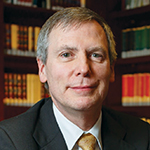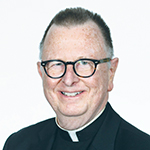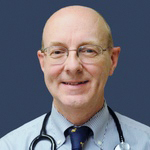How should advances in medicine change the Catholic approach to brain death and organ transplantation? When is someone considered dead? And how is that determination made?
Ethicists discussed these issues during a CHA-sponsored webinar, "Brain Death and Transplantation: Questions and Controversies," on Sept. 4. The webinar kicked off the fourth series of Emerging Topics in Catholic Health Care Ethics.

Dr. Daniel Sulmasy, the Andre Hellegers professor of biomedical ethics and director of the Kennedy Institute of Ethics at Georgetown University, started by stating the widely used definition of brain death.
"The way I put it is that the human organism has ceased to exist as a self-integrating whole," he said. "That's the point at which we ... say that this human being is dead."
Even if a person's hypothalamus is functioning, they can still meet the neurologic criteria for death. The hypothalamus is the part of the brain that helps maintain the body's homeostasis, or a stable state.
The role of the hypothalamus
The webinar moderator, Dr. Myles Sheehan, a Jesuit priest who is the director for the Pellegrino Center for Clinical Bioethics at Georgetown University, brought up the case of Jahi McMath, a 13-year-old girl who was considered brain dead in 2013 after routine tonsil surgery. Her family fought a legal battle to keep her alive and the girl continued to grow. She died 4½ years later of complications.

"There was a time where I might have thought, wow, the family is not working with the medical team here," said Dr. Allen Roberts II, a clinical ethicist and the associate medical director and physician executive director for inpatient operations at MedStar Georgetown University Hospital in Washington. "But, you know, I've come a long way since then. I really believe that family is worthy of celebration. They advocated for her, and the case brought the whole issue of the hypothalamus, really, to the fore. And I think she is one of the reasons that this debate is alive and well."

The three discussed different ways to test the function of the hypothalamus. "And this is a place where, I think, the current guidelines from 2023 and the American Academy of Neurology ... have simply dismissed the hypothalamus as a necessary entity to be assayed," said Roberts. "I respectfully disagree with that. I think we should allow science to progress, and at such time we will have a closer proxy determination of hypothalamic function, and therefore a closer alignment with the definition of brain death, as we know."
Sheehan said they were discussing the hypothalamus not because they argue that someone with a severe brain injury should have to remain on life support. "That's a different decision," he said. "What we are saying is we would not want to see this person become an organ donor, because they're still alive. And that's the problem that we perceive as coming up, necessitating more attention to the hypothalamus and the diagnosis of whole brain death."
Procuring organs for donation
The three discussed procedures and ethics involved in preserving organs used for transplantation. Sulmasy explained that to avoid damage to the heart or lungs after blood flow has stopped, some surgeons involved in transplants in Europe and the United States declare patients dead by circulatory criteria, then hook them up to extracorporeal membrane oxygenation, or ECMO, which often restarts the heart, and clamp off the arteries to the brain so the patients don't wake up. This causes brain death, he said, and invalidates the basis by which a doctor has declared death.
"Some folks had the clever idea to say this, but with all due respect to James Bond, you only die twice," he said.
Sulmasy said he understood that people want organs to be in good condition to help others, "but the good end does not justify the means. And to me, there are deeply troubling ethical issues with the means by which this is accomplished."
Ethical issues also may arise with clamping blood flow to the brain and restoring circulation to the heart and lungs to preserve the organs, the speakers said.
One alternative, Sulmasy explained, is normothermic machine perfusion, sometimes called "heart in a box." In this case, "instead of restarting circulation in the body and violating the declaration of death or causing brain death," he said, a surgeon would remove the organ from the body and put it into a machine that perfuses it with oxygenated blood until it goes into a recipient's body. Given the alternative of perfusing the organs while they are in the body, he said, "Why wouldn't you choose the one that is not ethically controversial?" The procedure may cost more, he said, but it might make up the loss by increasing the number of organs donated.
'Add another test'
Sheehan closed by asking the other ethicists their choice of three different positions on the current standards of brain death: it's too problematic and it's morally difficult to continue with the standards; current standards are appropriate; or brain death is a real entity, but further diagnostic clarification is needed.
Sulmasy said that for brain death, doctors need to be "more certain than we are," to meet the criterion that the whole brain has ceased to function. "The simplest thing to do is to add another test for the hypothalamus, because we're not testing for the hypothalamus right now." he said.
Roberts pointed out that death by circulatory criteria is a discovered entity observable over time, and he thinks of death by neurologic criteria as an invented entity. "I do believe in answer number three, and that is that there does indeed exist something that we can refer to confidently, morally, with moral certitude...that death by neurologic criteria can be diagnosed." he said.
The next webinar in the series, Definitions of Abortion from EMTALA (Emergency Medical Treatment and Labor Act) and Catholic Theology, will be at noon EST Oct. 2. Register at chausa.org/events.
